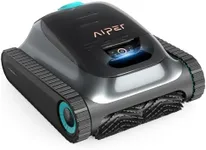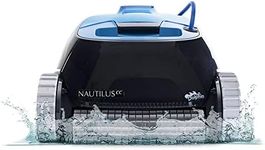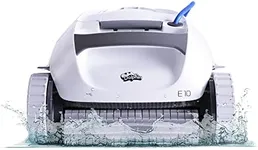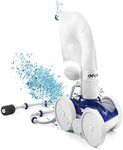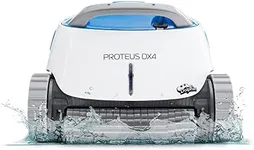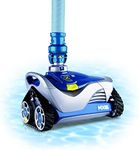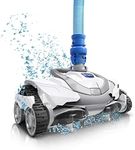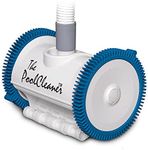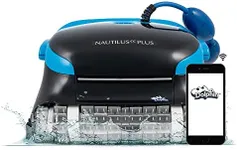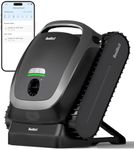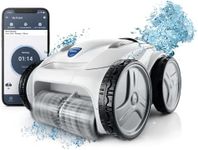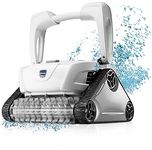Buying Guide for the Best Swimming Pool Vacuum
Choosing the right swimming pool vacuum can make maintaining your pool much easier and more efficient. The right vacuum will help keep your pool clean, clear, and inviting by removing debris, dirt, and algae. When selecting a swimming pool vacuum, it's important to consider several key specifications to ensure you get the best fit for your pool's size, shape, and your cleaning needs.Type of VacuumThere are three main types of swimming pool vacuums: manual, automatic, and robotic. Manual vacuums require you to physically move the vacuum around the pool, which can be time-consuming but gives you control over the cleaning process. Automatic vacuums connect to your pool's filtration system and move around the pool on their own, saving you time and effort. Robotic vacuums are the most advanced and operate independently of your pool's filtration system, providing thorough cleaning with minimal effort. Choose a manual vacuum if you prefer hands-on control, an automatic vacuum for a balance of convenience and cost, or a robotic vacuum for the most convenience and thorough cleaning.
Pool Size and ShapeThe size and shape of your pool will influence the type of vacuum you need. Larger pools may benefit from automatic or robotic vacuums that can cover more area without requiring constant supervision. Irregularly shaped pools or pools with many obstacles may require a vacuum with advanced navigation capabilities to ensure thorough cleaning. Consider the dimensions and layout of your pool when selecting a vacuum to ensure it can effectively clean all areas.
Suction PowerSuction power determines how effectively the vacuum can pick up debris from the pool floor and walls. Higher suction power is generally better for removing larger debris and ensuring a thorough clean. However, too much suction power can sometimes cause the vacuum to get stuck or damage delicate pool surfaces. For small to medium-sized pools with light debris, a vacuum with moderate suction power should suffice. For larger pools or those with heavy debris, opt for a vacuum with higher suction power.
Filtration System CompatibilityIf you choose an automatic vacuum, it's important to ensure it is compatible with your pool's existing filtration system. Some vacuums require specific types of filters or pumps to operate effectively. Check the specifications of both your pool's filtration system and the vacuum to ensure they are compatible. This will help avoid any issues with installation and ensure optimal performance.
Ease of Use and MaintenanceConsider how easy the vacuum is to set up, operate, and maintain. Some vacuums come with user-friendly features such as programmable cleaning cycles, remote controls, and easy-to-clean filter bags. Others may require more manual effort to set up and maintain. If you prefer a low-maintenance option, look for vacuums with features that simplify operation and upkeep. This will save you time and effort in the long run.
Durability and WarrantyA durable vacuum will withstand regular use and last for many seasons. Look for vacuums made from high-quality materials and with good build quality. Additionally, check the warranty offered by the manufacturer. A longer warranty period can provide peace of mind and protection against potential defects or issues. Choose a vacuum with a solid reputation for durability and a comprehensive warranty to ensure long-term satisfaction.
